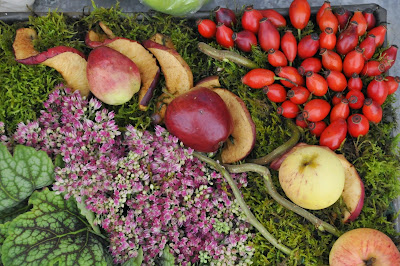In both
Armenia and Georgia, evidence of the failed economic policies of both the
Soviet Union and the new countries are abundant. Empty factories are part of the landscape, built by the
Soviets, bought by shady businessmen, stripped of everything that could be sold,
and then left to decay in a way that only Jan
Jörnmark can appreciate.
In the
countryside, large abandoned farmhouses can be found in many areas. They are the results
of the kolkhoz policy
requiring villages to give up their private land to focus on one kind of
farming, often irrespectively of what the land was suited for. However, the
transition from the Soviet centrally
planned economy to a market economy has not
been easy. Not every family was prepared for the sudden responsibility for all
the tasks involved in farming, leaving a substantial part of the rural
population longing for the old times.
Mistakes
were also made regarding the major industries and infrastructures, creating
private oligopolies
instead of having a healthy mix of a large number of both private and public
bodies. Monopolies and oligopolies hold about 60 % of Armenia’s market,
according to a new World Bank report "Republic
of Armenia: Accumulation, Competition, and Connectivity.
In Georgia,
the Law
on Competition came into force in September 2014 and is supposed to be
enforced by The Competition Agency. Since Georgia is very much pro-EU, the law
is strongly influenced by EU legislation and reflects concepts from
contemporary EU rules and practices. However, not
everybody is convinced they are doing a good job.
 |
| From Caucasus Highlights 2015 |
Today,
there is again much talk about collective economy, although in a somewhat
different shape. Maybe there is something to learn from this movement also for
the South Caucasus countries and they probably have insights to share.
Inspiration can be found everywhere: In Sweden, the Forum for Social Innovation Sweden
recently released an ABC
in collaborative economy (in Swedish). If you live in Gothenburg, you can
join the new Collaborative Economy Göteborg
Association. If you're more into going to France, I recommend the next OuiShare Fest in Paris in May.
One aspect
of collective economy is the sharing economy trend.
It's really easy to get lost in this area where there is a big difference
between companies like Uber and Airbnb, making loads of money, and voluntary
associations or initiatives not earning a penny. I recommend reading the report
"The
Sharing Economy - Embracing Change With Caution".
A favourite sharing initiative right now is the Fruktförmedlingen (The Fruit Agency) where you can see where you can get fruit for free in Sweden.
A favourite sharing initiative right now is the Fruktförmedlingen (The Fruit Agency) where you can see where you can get fruit for free in Sweden.
 |
| From Höstmarknad sep 2014 |





No comments:
Post a Comment